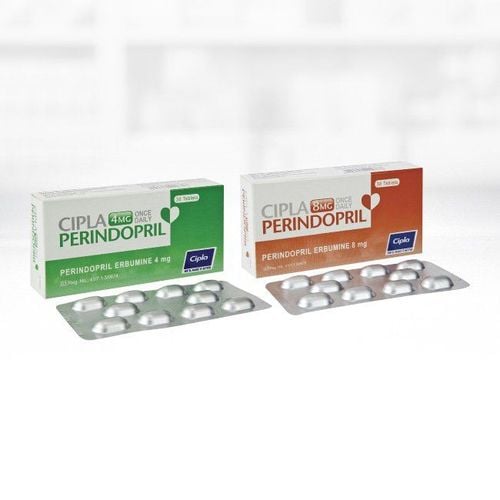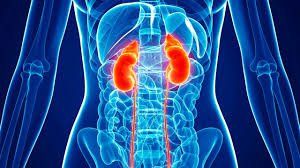This is an automatically translated article.
This article is professionally consulted by Master, Doctor Nguyen Minh Son - Interventional Cardiologist - Department of Medical Examination & Internal Medicine - Vinmec Nha Trang International General Hospital.Beta-blockers are increasingly widely used in the treatment of cardiovascular diseases such as hypertension, arrhythmia, angina pectoris, heart failure. What is the mechanism of action of beta-blockers?
1. What are beta-blockers?
Beta-blockers (or beta-blockers, beta blockers) are one of the drugs used quite commonly in the treatment of cardiovascular disease, helping to reduce mortality and improve patients' quality of life. Most beta-blockers are well absorbed orally. These drugs act by blocking sympathomimetic receptors and inhibiting the sympathetic effects on cardiomyocytes (including pacing, myocardial excitability, neuromuscular transmission, and fiber contraction). negative muscle) and in tracheobronchial (tracheal constriction effect).Beta-blockers are a class of prescription drugs. The doctor will prescribe the drug that best suits the health condition of each patient. Examples of beta blockers and brand names include: acebutolol, atenolol, metoprolol, bisoprolol, propranolol,...
2. Mechanism of action of beta-blockers
Beta-blockers inhibit the action of the neurotransmitters adrenaline and noradrenaline through a beta-receptor blocker mechanism, preventing these substances from binding to β1 (beta-1) and β2 (beta-) receptors. 2) of sympathetic nerve cells, thus having the effect of slowing down the heart rate, dilating blood vessels, reducing blood pressure, bronchospasm...
Cơ chế tác dụng của thuốc ức chế beta là gì?
β1 receptors are found in the heart, eyes, and kidneys. Meanwhile, β2 receptors are present in the lungs, gastrointestinal tract, uterus, blood vessels, and skeletal muscle. Depending on the site of action on which receptor, beta-blockers will have a corresponding effect. In the treatment of cardiovascular disease, beta-blockers all play a role, but the mechanism of action of beta-blockers may be different based on each subgroup:
Subgroup 1 (including atenolol, bisoprolol, metoprolol): The selective blocking action is mainly on beta-1 receptors, so the main effects include slowing the heart rate, reducing constriction, reducing cardiac output, lowering blood pressure (watershed effect). Because of this mechanism, class 1 beta-blockers have a rapid and strong antihypertensive effect, but also slow down the heart rate, which is not beneficial for people with bradycardia.
Subgroup 2 (including propranolol, nadolol, timolol): Has non-selective beta-blocking action. These drugs both block beta-1, lower blood pressure like group I and block beta-2, leading to vasodilation, decreased peripheral resistance, and lower blood pressure (terminal effect). Due to the mechanism of action of this group of beta-blockers on both receptors, the antihypertensive effect is only moderate, but does not slow the heart rate as strongly as with subgroup 1.
Subgroup 3 (including carvedilol) , labetalol): Non-selective inhibitory action on beta-1 and beta-2, while blocking alpha-1 receptors, causing vasodilatation, reduction in peripheral resistance, lowering blood pressure (end effect). source). Thus, subgroup III has the effect of lowering blood pressure due to the main mechanism of vasodilation (blocking alpha-1 and beta-2).
3. Contraindications of beta-blockers

Thuốc chống chỉ định với người bệnh hen suyễn
Asthma: This contraindication applies to non-selective beta-blockers and beta-1-selective beta-blockers; Atrioventricular block - 2nd and 3rd degree ventricles; decompensated congestive heart failure; bradycardia, with an interval of less than 50 beats/min; Raynaud's syndrome and some other peripheral vascular lesions; Liver failure with symptoms of hyperbilirubinemia, severe ascites, hepatic encephalopathy; Contraindicated in combination with amiodarone (risk of severe arrhythmias); Contraindicated in combination with monoamine oxidase inhibitors (iMAO group); During pregnancy (safety has not been established) and breast-feeding (potential to pass into breast milk). In conclusion, beta-blockers are very commonly indicated in the treatment of cardiovascular disease, especially hypertension. However, depending on the mechanism of action of each subtype, the doctor will combine drugs appropriately to prescribe for the patient.
Master - Doctor Nguyen Minh Son has many years of experience in the diagnosis and treatment of cardiovascular diseases; especially strong in transthoracic echocardiography in the field of internal medicine and interventional cardiology. Perform other non-invasive functional investigations in the diagnosis and treatment of cardiovascular diseases. Currently working as a treating doctor at Cardiology Center, Department of Examination & Internal Medicine, Vinmec Nha Trang International General Hospital since February 2019.
Please dial HOTLINE for more information or register for an appointment HERE. Download MyVinmec app to make appointments faster and to manage your bookings easily.
Reference source: Documents of the Vietnam Society of Cardiology












